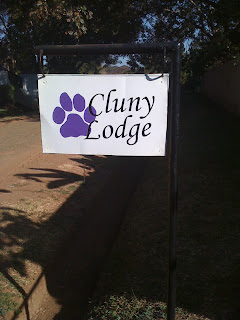Up at 4:15 in the morning to travel to Lilongwe. Oh what a beautiful morning. Oh what a beautiful day...
The rumor
mill had it that Air Malawi was on strike so we were not 100 percent sure that
we would be able to fly and instead have to drive for four hours to Lilongwe. Everything worked out and by 8:00 AM we
arrived in Lilongwe. We quickly arrived
at our next place of lodging, the Cluny Lodge.
This too is a lovely place where I relaxed, answered emails, worked on
the blog and was very thankful for a safe journey. I do my best to drink up the beauty and wonder of Malawi. The land is vast and unspoiled. I love this place...
The week ahead is packed with activities as we continue our work with the Global Health Fellows.
I could not resist taking a photo of this old phone. The only modernization is that the individual numbers are "push bottom" instead of the finger dial - oh well.
The week ahead is packed with activities as we continue our work with the Global Health Fellows.
 |
| Cluny Lodge |
 |
Cluny Lodge in Malawi
Hosts - Marines & Bev
Hector - the Mastif
Hera - the Chocolate Lab
|
 |
| Entrance to the Cluny Lodge |
I could not resist taking a photo of this old phone. The only modernization is that the individual numbers are "push bottom" instead of the finger dial - oh well.








